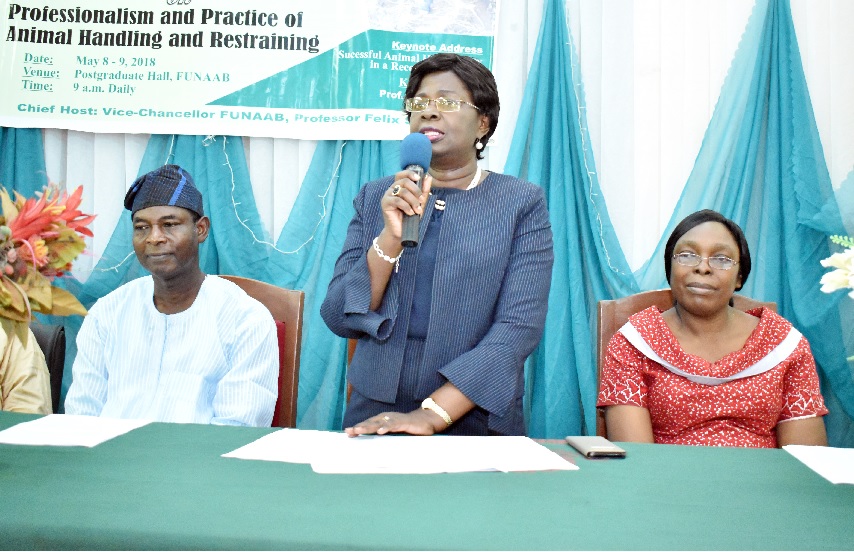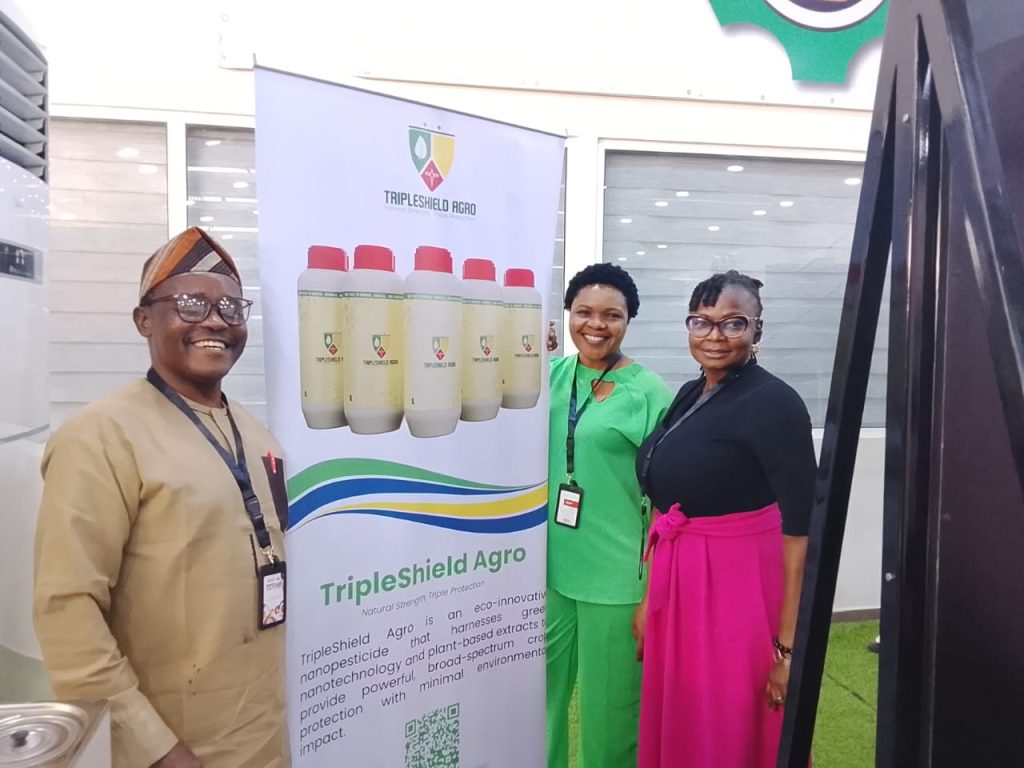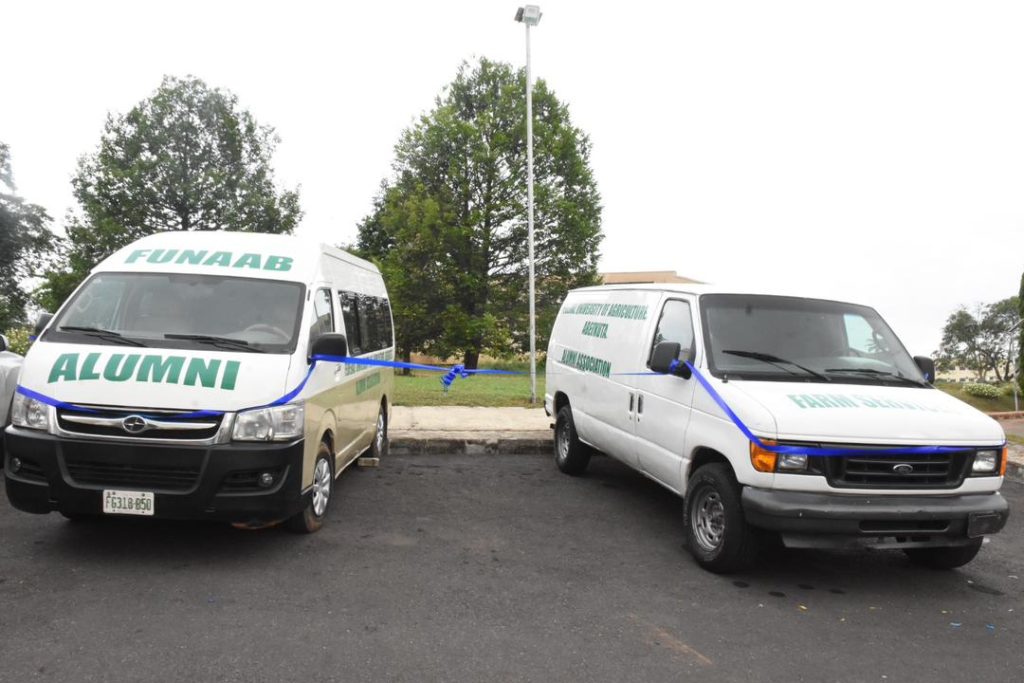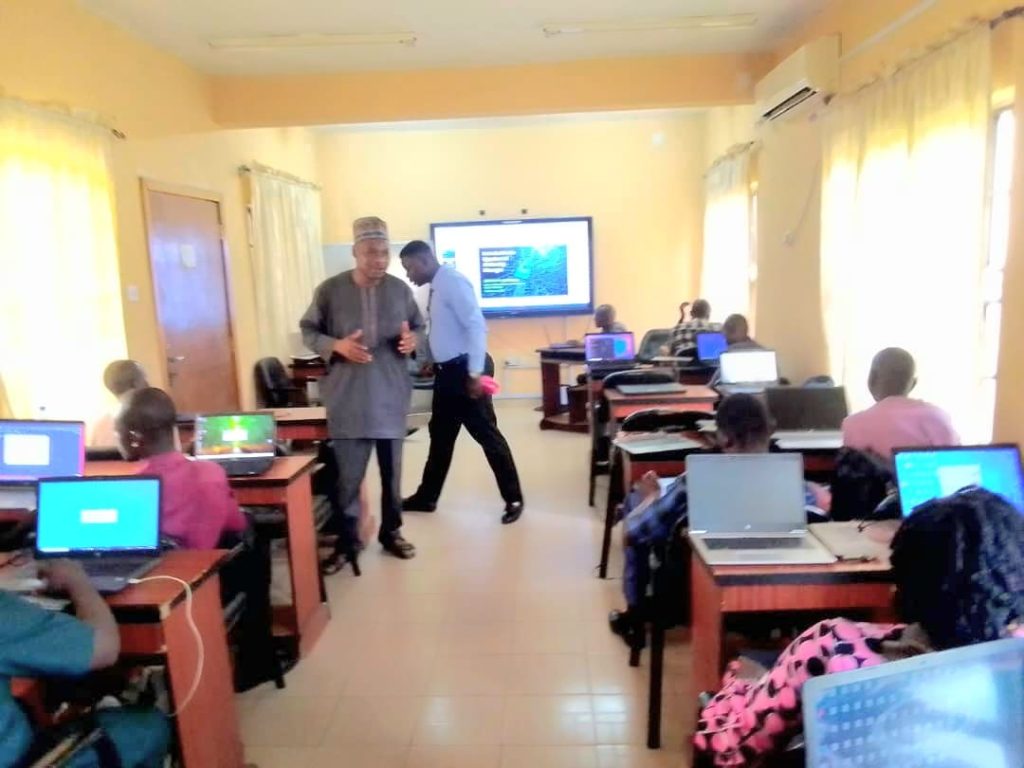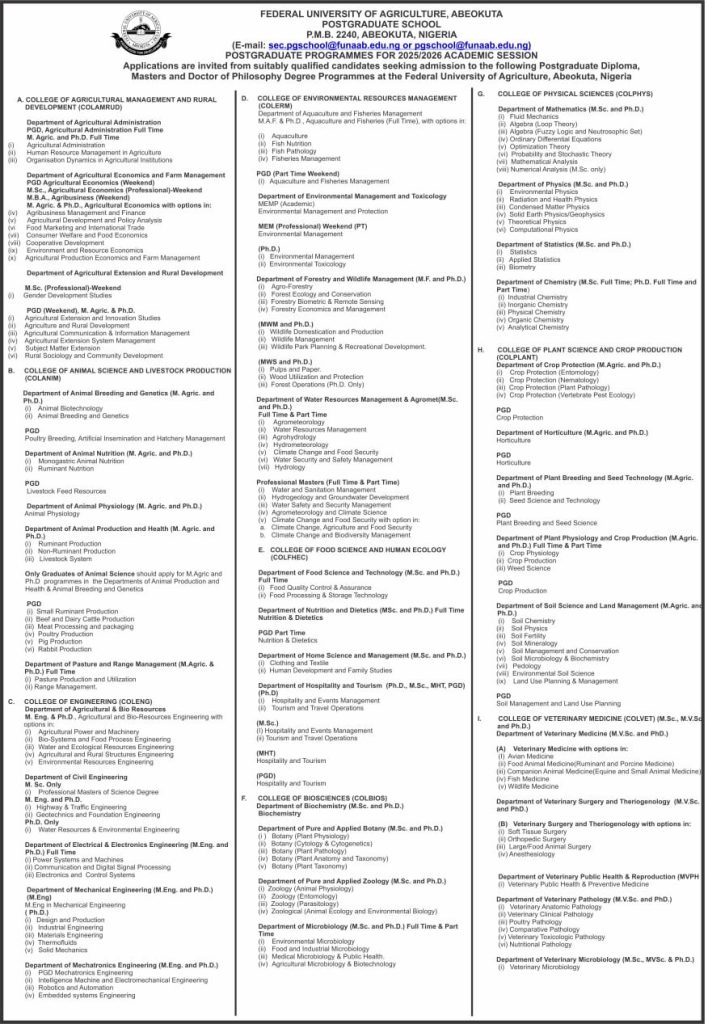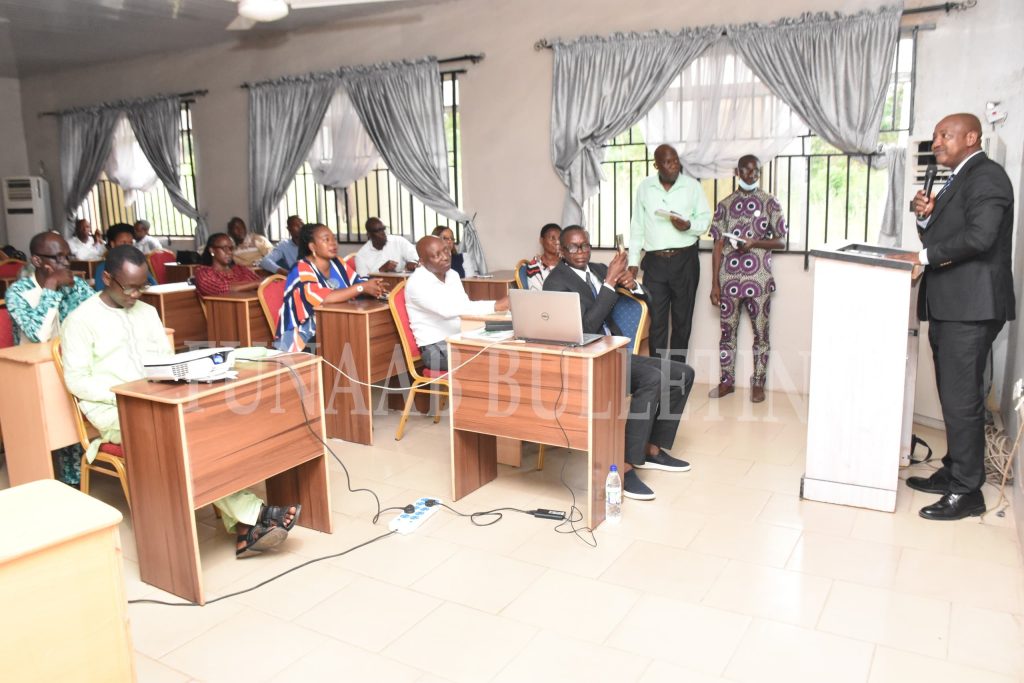Last Updated on June 12, 2018 by FUNAAB
A Professor of Animal Physiology, Prof. Olusegun Osinowo has identified the neglect of animal handling and restraint as a limitation to the production of healthy and safe high quality animal protein.
Speaking at a 2-Day Training Workshop on Professionalism and Practice of Animal Handling and Restraining, organised by the Institute of Food Security, Environmental Resources and Agricultural Research (IFSERAR), Prof. Osinowo lamented the state of animal handling in Nigeria, which he said suffers from acute shortage of needed training, equipment and infrastructure for efficient, safe and humane treatment of animals.
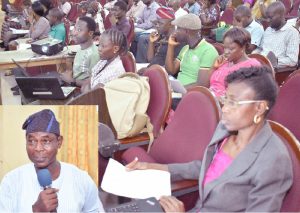
According to the Chief Executive Officer (CEO), Sophia Academic Services Limited, “animal handling refers to the numerous ways in which man interacts with livestock, pets or wildlife to control their feeding, movement, interaction with other animals, as well as their health and behaviour generally, so as to derive maximum benefit from them”.
Prof. Osinowo stressed the need for the application of professionalism in animal handling and restraint which he said should involve skilful application of specific techniques in safe humane ways
to ensure good quality meat.
The pioneer Director of IFSERAR disclosed that “a visit to any abattoir or slaughter slab in most parts of Nigeria will quickly reveal the inhumane handling of cattle before and during slaughter”.
Prof. Osinowo recommended the inclusion of animal handling and restraint in the Animal Science curriculum of Nigerian institutions, procurement of appropriate equipment by Universities to ensure adequate training of students and need for the enforcement of animal welfare regulations by the Nigerian Institute of Animal Science (NIAS).
He also made case for the adoption of modern beef breeds used for ranching world-wide, such as Angus, Hereford, Shorthorn Simmental and Limousin which tend to be short-legged and having short horn, stressing that the present breeds of the Fulani cattle are unsuitable for the ranching needs of the country as majority of the Fulani cattle in Nigeria are long-horn cattle and may not be easy to manoeuvre through most modern cattle handling equipment and facilities.
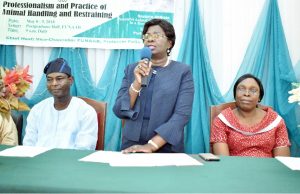
The Professor of Animal Physiology further revealed that the Muturu which is West African short horn would be ideal for ranching if its mature bodyweight can be improved upon through selection.
In his Address, the Vice Chancellor, Prof. Kolawole Salako who was represented by the Deputy Vice Chancellor (Academic), Prof. Morenike Dipeolu commended IFSERAR for championing the Workshop which he said was being held in collaboration with the College of Veterinary Medicine (COLVET), the College of Animal Science and Livestock Production (COLANIM) and had participants who principally are farm attendants, animal handlers, livestock superintendents, Vet clinic attendants, experimental animal supervisors, would be farmers and students.
He disclosed that the Training is expected to evolve new directions for the improvement of the livestock industry.
Earlier in her Welcome Address, the Director IFSERAR, Prof. Bamidele Oluwatosin noted that the Training was apt because it was coming at a time when globally, there is an increasing demand for animal rearing and handling, using humane practices.
Prof. Oluwatosin expressed gratitude to the University Management for its huge investments on the purchase and sustenance of different classes of livestock which she described as “FUNAAB’s modest contribution to livestock development in Nigeria”.

